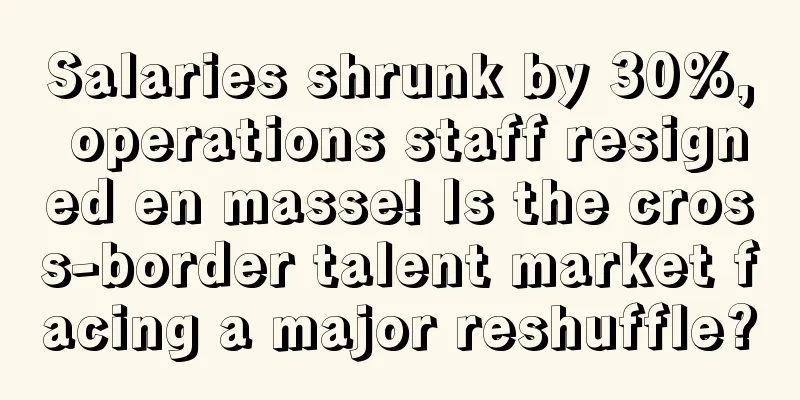Is the epidemic bonus fading? FedEx's transportation volume has dropped the most! Amazon's transportation growth has stopped!

|
New U.S. package delivery data from Pitney Bowes outlines the extent of the decline in freight volumes for major carriers and the outlook for the industry. U.S. package delivery demand fell in 2022, causing top carriers such as FedEx to scramble to cut costs and recalibrate their transportation networks to cope with an uncertain future transportation market. Data from the Pitney Bowes Parcel Shipping Index, released Tuesday, outlines the extent of those volume declines and which delivery providers are performing best in a difficult environment. Below are five charts based on that data, covering trends like the decoupling of UPS and Amazon, the growth of regional carriers and the outlook for the express delivery industry. Package volume down, but revenue upAccording to the index, after years of growth, U.S. package volumes fell 2.2% from 2021 to 2022. As e-commerce demand cools after a surge in COVID-19 cases, these shipping giants have all seen varying degrees of decline in shipping volumes. Despite the decline in volumes, pricing power for delivery providers remains strong. U.S. parcel revenue grew 6.5% year-over-year, which Pitney Bowes said was driven by inflation and higher fuel surcharges. Vijay Ramachandran, the company's vice president of go-to-market support and experience, pointed to other reasons for the discrepancy between volumes and revenue. Many consumers with high spending power have moved from cities to suburban and remote areas, which has increased the delivery costs of logistics companies. After the outbreak of the epidemic, the number of orders surged, and many transportation giants invested heavily in expanding their capacity. Now that the epidemic has been brought under control, they are trying to recover their investments and continue to raise rates. Despite the decline in demand, logistics providers' revenues are still increasing. The following is a line chart of the year-on-year growth in the US parcel market volume and revenue:Amazon Logistics sales have held steady, but are a marked slowdown from the six years of breakneck growth at the e-commerce giant’s in-house fulfillment arm, which has closed and eliminated dozens of warehouses to ease the burden of fixed costs and better match capacity to demand. U.S. package volumes shipped by carrier since 2015 While UPS outperformed rival FedEx in terms of freight volume losses last year, it has seen the most market share among carriers since 2016. Meanwhile, its largest customer, Amazon, has seen its market share grow significantly during that period.UPS prioritized attracting more profitable shipper segments rather than customers like Amazon, which deliver large volumes of goods but at lower margins. At the same time, Amazon built its own logistics capabilities to deliver more customer orders in-house and rely less on third-party carriers. This gradual shift resulted in many deliveries that would have been made by UPS being fulfilled by Amazon. Amazon eats into UPS's share of package salesUS Parcel Market Share by Volume Small airlines continue to growAfter nearly doubling their package volumes in 2021, small U.S. package carriers have again seen strong growth in 2022 despite a more challenging environment. Carriers other than UPS, FedEx, the Postal Service, and Amazon saw sales and revenue increase by approximately 25% and 29%, respectively, year over year. Shippers are showing strong interest in alternatives to top carriers, seeking lower delivery rates and insurance against capacity constraints. They are also expanding coverage and leveraging partnerships with software providers and shipping platforms to expand their customer reach. These delivery providers — which include LaserShip/OnTrac, Lone Star Overnight and Spee-Dee Delivery — have a long way to go to catch up to rivals FedEx and UPS, as they had just 2% of the market by volume last year. They also may have trouble attracting customers in a challenging economic environment as volume discounts from national carriers become more attractive. “[Carrier] diversification is a risk mitigation strategy, but it may not be a cost-saving strategy,” Pitney Bowes’ Ramachandran said. Delivery method to grow further in 2022U.S. package volumes for carriers other than UPS, FedEx, the Postal Service, and Amazon Sales growth expected to slowAccording to the index, macroeconomic uncertainty, inflationary pressures and post-COVID-19 market normalization will all weigh on future U.S. parcel volume growth. The most likely CAGR forecast for 2023 to 2028 is 5%, down from the 10.8% CAGR from 2016 to 2022. That pace predicts about 28 billion packages in the U.S. market in 2028, though the index projects that number could ultimately be as low as 24 billion or as high as 32 billion. The parcel market is expected to see a decline in growth rates. The chart below shows the volume of US parcels shipped since 2015. The projected figures for 2023-2028 are based on 5% growth per year.
FedEx sees biggest drop in sales, Amazon momentum stallsFedEx saw the largest increase in U.S. package volumes in 2021 and 2022, respectively, and the largest overall decline. The shift highlights the turmoil Raj Subramaniam has encountered during his tenure as FedEx CEO, as a plunge in demand prompted the company to cut costs to ease pressure on its bottom line. UPS and the U.S. Postal Service also experienced declines in shipping volumes in 2022 amid a weak demand environment. Editor ✎Estella/ Disclaimer: This article is copyrighted and may not be reproduced without permission. |
>>: List of Canada's most trafficked websites: social media, e-commerce platforms and search engines
Recommend
My brother-in-law took drastic measures against Feedback! Is this also a ban?
This year, Amazon has made a lot of adjustments t...
Amazon Operations in Cards (Part 2)
This article is highly concise and directly uses N...
A category exploded! Here everyone is a "VC python"
I believe that all sellers have been flooded with...
Annual Report on U.S. Home Furnishings Consumption: Insights into Growth Opportunities and Online Shopping Trends
It is learned that DigitalCommerce360 and BizrateI...
Here you go! Amazon's 7 daily operations Easter eggs
Source: Hugo.com Author: Lei Dian This is a story...
Annual sales of tens of millions of dollars, many products dominate the BSR list! Women's brands are rising strongly
In recent years, with the rise of women's self...
The United States may issue another 908 billion US dollars, and sellers are ready to receive a surge in orders!
The United States will issue more money, and the ...
What is Forrest Gump Overseas Warehouse? Forrest Gump Overseas Warehouse Review
Agam Overseas Warehouse is an intelligent overseas...
What is the 101 · Times Youth Program? 101 · Times Youth Program Review
Amazon Global Selling 101 · The Times Youth Progra...
Shein's first-half revenue hit a record high and it is actively recruiting Amazon sellers
Ever since Temu chose the North American market as...
Temu faces the most stringent scrutiny! Whose "cheese" has been snatched?
Over the past year, Temu's rapid growth has be...
California passes new warehouse quota bill! Amazon FBA logistics may be affected!
It is learned that according to foreign media repo...
Stop loss in time? Meta shareholders call on Mark Zuckerberg to stop burning money in the Metaverse!
Meta's shareholder Altimeter Capital Managemen...
What is Sellics? Sellics Review
Sellics is an all-in-one Amazon seller tool that c...









